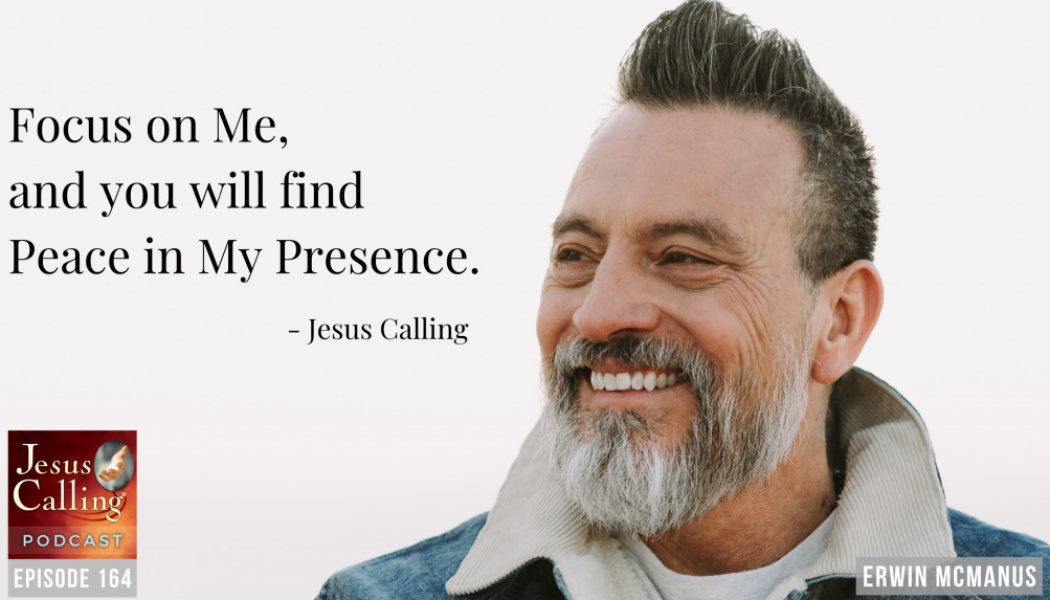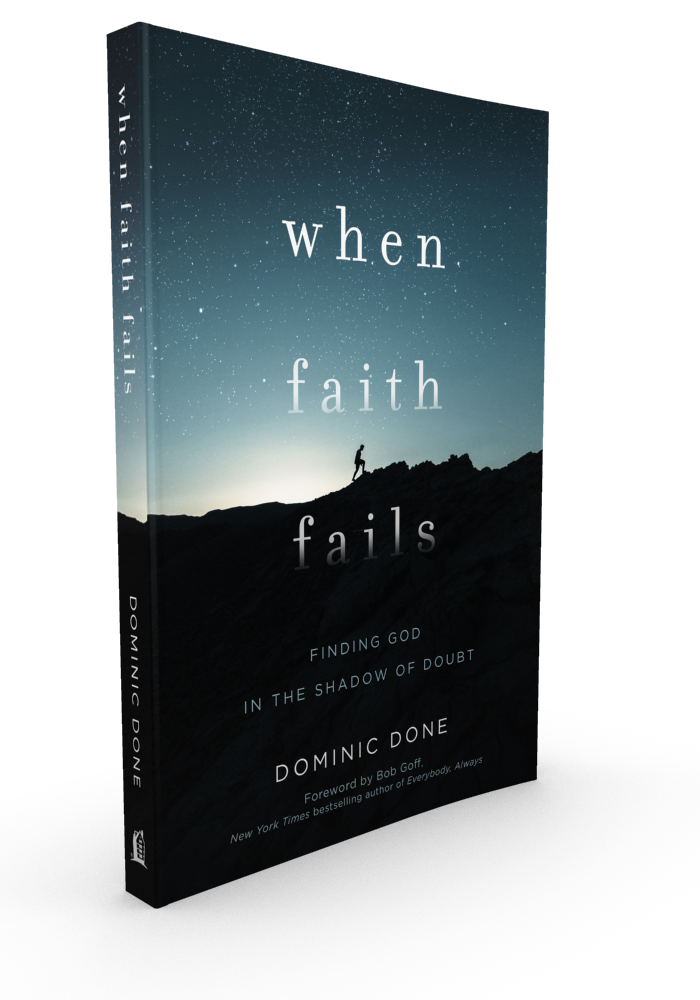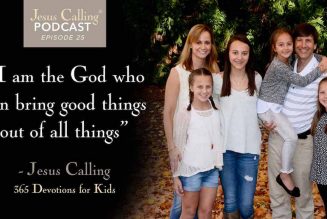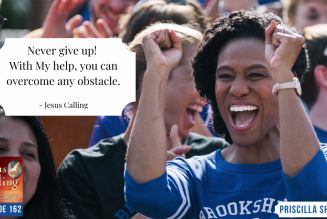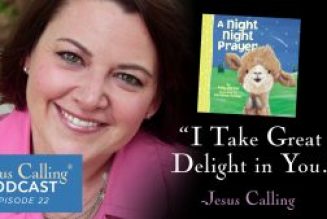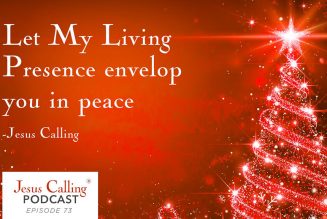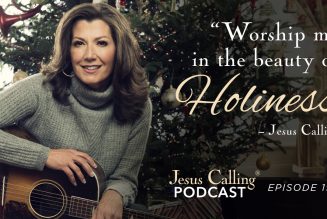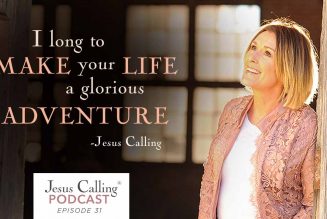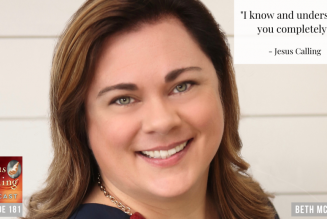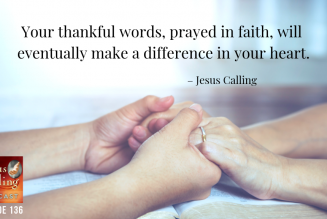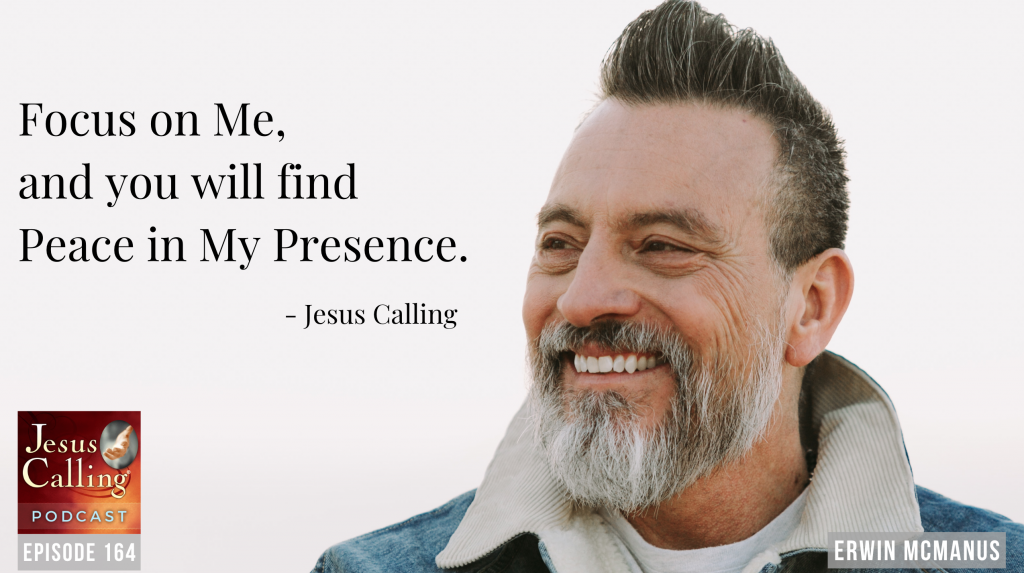
Erwin McManus: My goal is to help people have inner peace in the middle of the conflict, to have inner peace in the middle of the chaos, to have the kind of peace where they measure their life by how many others they helped find peace in the world.
Wrestling with Questions, Finding Peace from God: Erwin McManus & Dominic Done – Episode #164
Narrator: Welcome to the Jesus Calling Podcast. Today we talk with two pastors who ask deep questions of God, and how, in the midst of their wonderings, they’re able to feel peace: Pastors Erwin McManus and Dominic Done.
First up, Erwin McManus is an artist and writer who works to integrate creativity and spirituality. He is the founder and Lead Pastor of Mosaic, a Los Angeles-based church recognized as one of America’s most influential and innovative churches. Erwin walks us through humanity’s lifelong struggle to find peace, and why God is instrumental in helping us win that battle.
Erwin McManus: My name is Erwin McManus. I’m the founder of Mosaic, and I just recently wrote a book called The Way of the Warrior.
Spiritual Warriors Battle for Peace
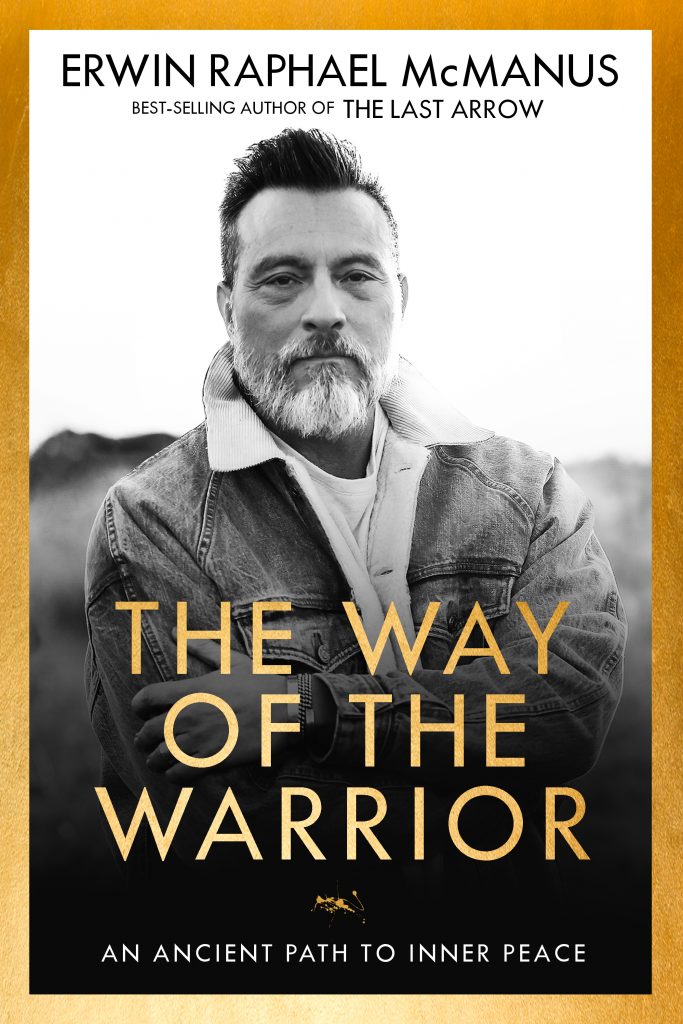
The Way of the Warrior came from the kind of an unusual moment. My wife and I were traveling through Hollywood, driving down Vine, and I was thinking and daydreaming and had a moment of quietness while I was driving. I just heard this inner voice say, “The warrior is not ready for battle until they’ve come to know peace. This is the way of the warrior.” And I looked over at my wife and said, “I know what my next book is. I know what it’s called, and I know it was the first line is.” I didn’t know anything else after that. But it was this idea that the warrior is not ready for battle until they’ve come to know peace, that every human being is in a battle—the greatest battle in the world is for inner peace.
And I started processing how humans are incredible as a species. I mean, we’ve harnessed fire and light. We’ve harnessed nuclear power and solar power. We invented the Internet, the telephone, and television. But as evolved as we are, we can’t seem to create peace. Peace seems to constantly elude us.
What drove this book for me is that we’ll never know world peace until we have inner peace, that the reason the world is at war is [because] we are at war. The reason there are wars that rage all around us is that there are wars that rage within us. And I felt like there wasn’t a definitive conversation about how to bring inner peace.
“The reason there are wars that rage all around us is that there are wars that rage within us.” – Erwin McManus
But we, in many ways, hold onto a magical view of faith. If we believe the right things, if we say the right things, if we hope the right things, then it’s supposed to happen. Then we actually end up replacing a truly deep spiritual journey with magic and superstition. And that’s why it leaves us so desperate because if you quote these verses, you’re supposed to get better, or if you memorize this truth, it is supposed to change you. And that’s why I use the metaphor of a warrior. The battle for peace is exactly that: it’s a struggle, it’s a battle, it’s a daily engagement for peace within your soul.
“The battle for peace is exactly that: it’s a struggle, it’s a battle, it’s a daily engagement for peace within your soul.” – Erwin McManus
I wanted people to understand when you’re fighting for inner peace, you’re actually taking on a heroic journey. This is a warrior’s battle, and it will not come easily, and it will not come without a struggle, and it will not come without a fight. So, I chose this language, even though I know there is a sense of conflict in [it].
But I want people to know that if you have the sense that you’re supposed to go to war against something, you need to make sure you go to war for the right things. Even Jesus said there will always be wars and rumors of wars. How did He know that? It’s because He knew the human heart, He knew there was a war that raged inside of us.
My friends who are atheists, agnostics, or Buddhists, or [even if] they just don’t know there’s a God, they look at all the suffering in the world and all the violence in the world and say, “How can there be a God? Look at the human condition.” My response is, “Actually, no. This is how we know there’s more, because of the human condition. The fact that we can’t seem to get along as a species tells us something broken inside of us. Something is out of alignment.”
It is interesting how we create scenarios for ourselves in which we lose hope. One of the unique things about hope—and I write about this in the book—is that for hope to exist, it has to be in the future. When our hope is placed in the past, it turns into regret. The strange thing about hope is that you can hope for something, and once you have it, it is no longer a source of hope.
”For hope to exist, it has to be in the future. When our hope is placed in the past, it turns into regret.” – Erwin McManus
Humans are designed to be connected to the future. The reason we lose hope is we lose our confidence in a better future, that we can create a different future. And it’s odd, if you think about it, that we humans need hope. I mean, when you look at the human experience you [think], Okay, every human needs to drink water. Every human being needs to breathe oxygen. Every human being needs to eat to survive. So we know we all need to eat, drink, and breathe. That makes perfect sense because of our physicality, our physiology. But how odd it is that humans have to have hope? [Without it], we actually begin to die. Our souls begin to die.
Isn’t it odd that we all want peace, but we’ve never known peace? How is it that we can imagine world peace when we’ve never experienced it? How is it that people fight so that every child will have food when we’ve never known a world without poverty? How is it that we can imagine a world where everyone has justice when all we’ve known is a history of injustice? Human ideals are actually rooted in something that is outside of reality. We have never known it as a species. It’s the soul telling us what humanity is supposed to be like, what life is supposed to be like. And it’s our soul’s reminder to us that were created for more.
Jesus is, clearly, the singular personality that defines peace in all of human history. To me, it is pretty extraordinary that two thousand years ago, in the middle of conflict and Roman oppression over the Jews, in the middle of a world of chaos, violence, and dying the most violent death, Jesus becomes the icon of peace, which should tell us something. And I hope, as people are searching for peace, that they’ll crash into Jesus.
Getting Through the Loss of a Dream
I’m convinced the reason we’re created in the image of God is that we’re imagined by God to create. I never accept reality as a permanent condition. Reality is just a temporary state of being, we can redefine reality and recreate it. There was a time where submarines were not reality, airplanes were not reality, flying in space was not a reality. There was a time when breaking the four-minute mile was not a reality. So many things that we thought were impossible are now normal. People who accept reality have actually conceded their future.
“I’m convinced the reason we’re created in the image of God is that we’re imagined by God to create” – Erwin McManus
I mean, I live in L.A. so it’s the epicenter of dreamers. In fact, one of the metaphors [of] L.A. is the Boulevard of Broken Dreams, because so many people come to L.A. with huge dreams, and then ten thousand people come with the same talent, the same passion, the same training, and the same skill set, and they’re all fighting for the same dream. And even if they’re all equally talented, [only] one of them is going to get that job. One of them is going to step into that particular moment and it can be devastating. You would think people who have such huge dreams could recover easily from a broken dream, but it’s not true. Most of them, when they do not achieve their dream, end up paralyzed and float through life.
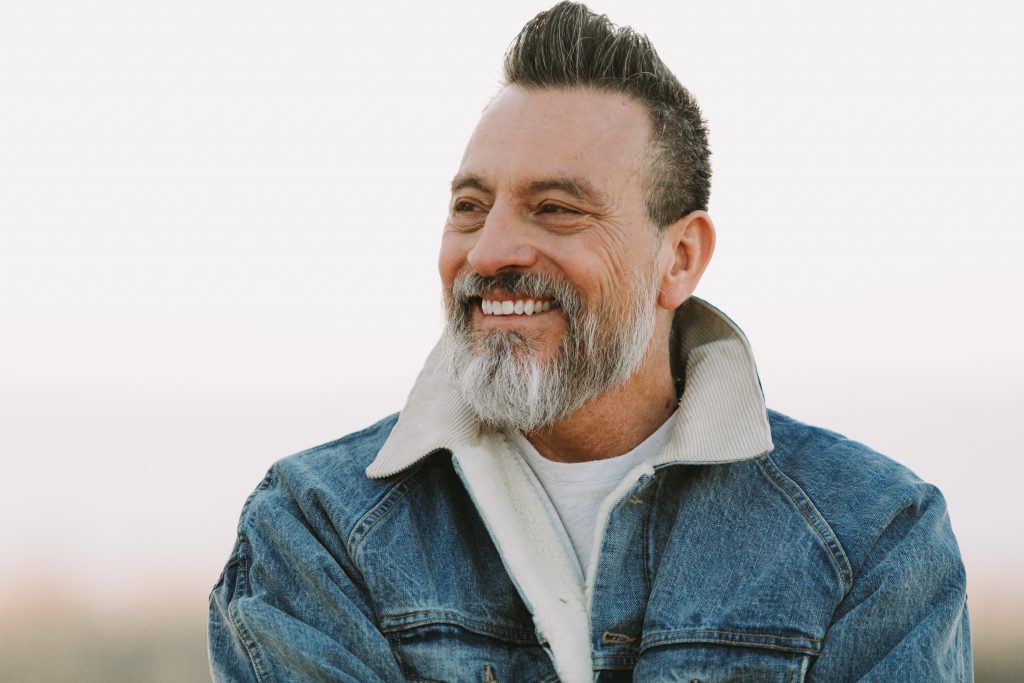
It’s one of the reasons that I think conversations like The Way of the Warrior are so important, [because] anyone whoever aspires to do anything meaningful is going to have the loss of a dream. One huge challenge is to not put your identity in the dream, because if your value as a human being is based on the dream you’re pursuing, then your value is really fragile.
I’ve had so many dreams in my life, and I’ve aspired to so many different things, and I’ve endeavored to do so many different things in different careers. And I had a lot of successes, and I’ve had an endless number of failures. I just think that when you have a broken dream, what you have to do is step back and realize that the loss of a dream isn’t the loss of your intention. It should not be the loss of your destiny, or your calling, or your future.
“Anyone who ever aspires to do anything meaningful is going to have the loss of a dream. One huge challenge is to not put your identity in the dream, because if your value as a human being is based on the dream you’re pursuing, then your value is really fragile.” – Erwin McManus
One of the ways you can know you’re pursuing the [wrong] dream is if you love the outcome, but not the process—it’s the wrong dream. If you love the process and the outcome is extra, then you’re in the right dream. And that’s why when you lose a dream, you were probably in the wrong dream. Because when you love the process, you never actually lose it. The process is a reward in itself, and that’s the beauty of it.
The best basketball players in the world don’t just play for the championships, they love basketball. They just eat, sleep, and dream it, twenty-four hours a day. They wake up [and] no one has to make them practice. There are some professional players who have to be forced to put the best of themselves [forward]. And that’s why there’s a huge divide between the best basketball players and the ones who achieve a level of greatness. The ones who achieve a level of greatness really don’t need to be coached, they don’t need to be managed, they don’t need to be prodded. They’re driven by their own ambition and their own determination. What I would say is, “Look, when you lose a dream, see it as a part of a process to get you where you need to be, to get to the next part of the dream.”
Narrator: Erwin’s book The Way of the Warrior is available from your favorite book retailer.
Stay tuned for our chat with pastor Dominic Done after a brief message about the Jesus Calling Weekly Prayer Call!
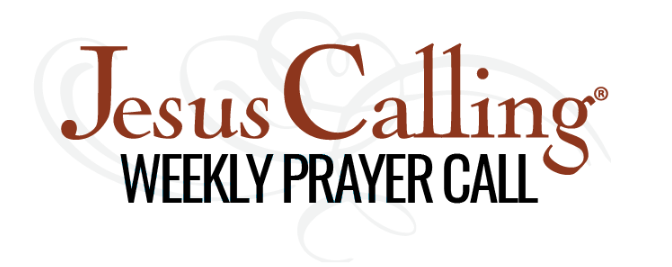 Did you know that Sarah Young, the author of Jesus Calling, prays for her readers each day? In that spirit, we want to extend the Jesus Calling prayer community out to you in a more personal way. Each Tuesday morning, you can dial in to the Jesus Calling Weekly Prayer Call, where the team from Jesus Calling and special guests will minister to us during a ten-minute call to reflect on that day’s passage from Jesus Calling, read scripture references, and pray together for each other and our world. Prayer call times are 8:00 a.m. Eastern, 7:00 a.m. Central, 6:00 a.m. Mountain, and 5:00 a.m. Pacific and are for U.S. only.
Did you know that Sarah Young, the author of Jesus Calling, prays for her readers each day? In that spirit, we want to extend the Jesus Calling prayer community out to you in a more personal way. Each Tuesday morning, you can dial in to the Jesus Calling Weekly Prayer Call, where the team from Jesus Calling and special guests will minister to us during a ten-minute call to reflect on that day’s passage from Jesus Calling, read scripture references, and pray together for each other and our world. Prayer call times are 8:00 a.m. Eastern, 7:00 a.m. Central, 6:00 a.m. Mountain, and 5:00 a.m. Pacific and are for U.S. only.
For more information on the Jesus Calling Weekly Prayer Call, or to submit prayer requests, please visit www.jesuscalling.com/prayer-call.
Narrator: Dominic Done is filled with questions about God. But today, those questions don’t fill him with doubt like they once did—in fact, Dominic has discovered those questions have led him into a deeper relationship with God. Dominic guides us through scripture and points out many instances in the Bible where others, like us, asked questions thousands of years ago—and Jesus left space for them to do so. Dominic also helps us with practical ways we can address our own doubt and how we can hold a strong faith and deep questions in both hands, which he’s written about in his new book When Faith Fails.
Dominic Done: My name is Dominic Done, and I was born in England, although you’d never guess it based on my accent. I was raised in Southern California, spent a ton of years traveling, teaching in different countries, and now I’m a pastor at a church in Portland, Oregon. It’s called West Side Jesus Church.
Honestly Engaging with Our Doubts
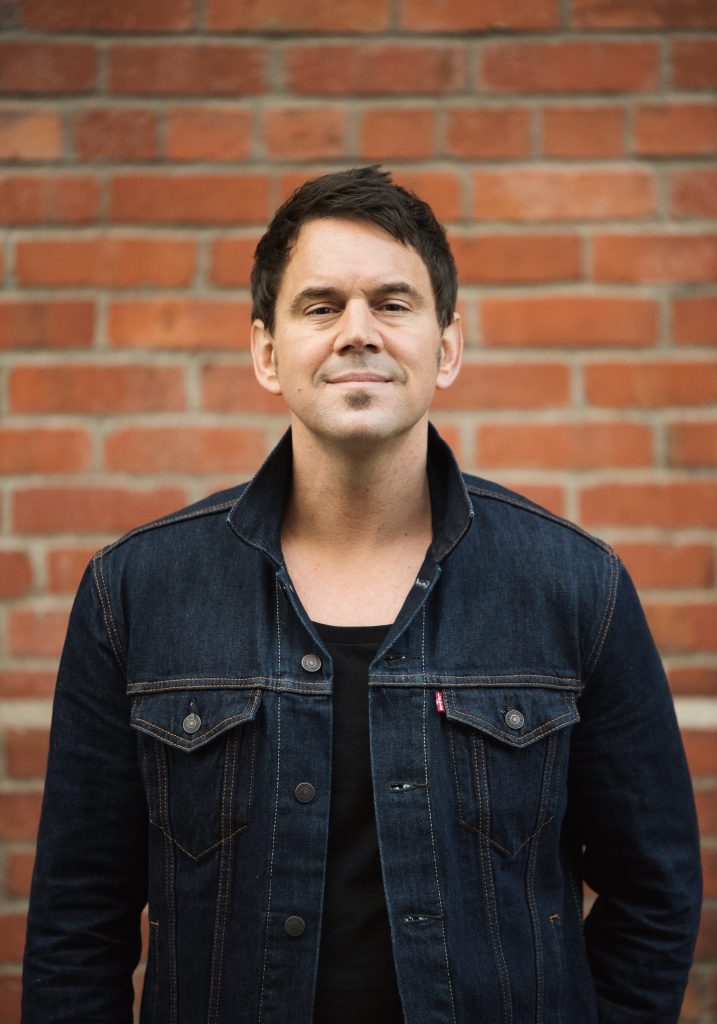
So last week, Gallup poll put out this study and they found that church attendance in America is actually at an all-time low. And then, according to another survey—this was Pew—the number of Americans who are experiencing doubts about God has actually increased fifteen percent in the last ten years, and that two-thirds of people who identify as Christian admit to struggling with doubt.
I think we find ourselves in a time when people are hungry and thirsty for a more authentic form of faith. We’re also confronted with questions, doubts, and uncertainties. The author James K.A. Smith said,
“We don’t believe instead of doubting—we believe while doubting. We are all Thomas now.”
And I think that’s true of this time in which we live, many of us can identify and relate to a guy like Doubting Thomas. We want a deeper form of faith, but we also don’t know what to do with our struggles and our questions.
“Many of us can identify and relate to a guy like Doubting Thomas. We want a deeper form of faith, but we also don’t know what to do with our struggles and our questions.” – Dominic Done
And sadly, in Christian subculture, there isn’t much room for doubts. I grew up in this context, thinking, I’ve got these questions. I have these uncertainties. I don’t know what to do with them, because what I’m told every week is you just gotta have faith, you’ve just got to have faith. And you really suppress your doubts, you push down the questions with more songs, sermons, and affirmations of faith.
Part of the reason why I called my book When Faith Fails is because I went through a time when I thought my faith was failing, and almost walked away from the faith, actually. That was really hard, and a big factor was the silence of God. I didn’t know what to do with these doubts, uncertainties, and questions, and I wasn’t finding those quick answers that I wanted.
I think rather than suppressing our doubts, we need to honestly engage with them. I would argue that doubt leads to questions. If you begin to unpack the word “doubt,” it comes from this Latin word dubatare, which means “two.” So when you’re doubting, you’re literally in two different minds. Think of what the book of James says, “The person who doubts is like the person who’s going to toss back and forth on the waves of the sea.” And I think that’s more descriptive, rather than a judgmental comment about those who doubt. You’re in this place of being thrown back and forth, you’re in two minds, you’re torn between two perspectives. And that’s where questions are born, because you’re wondering Which one is true? Which way should I go?
Questions Can Lead to a Deeper Relationship with God
I think it takes wisdom to learn how to live in the tension of an unresolved faith. And that’s the key, isn’t it? Because our faith is unresolved, we see “through a glass dimly,” Paul said. So, questions are part of the package. In fact, I would actually argue that God designed [us] in such a way that questions are born and that questions can lead us into a deeper, richer, more meaningful relationship with God.
For example, my relationship with my wife: I love my wife. I know a lot about my wife. She loves to paint. She loves to cook. She likes sweet potatoes, which I don’t understand. She used to be a cat person, and then we got a dog and she repented. There’s a lot I know about her from years of being married to her, and that’s great.
“I would actually argue that God designed [us] in such a way that questions are born and that questions can lead us into a deeper, richer, more meaningful relationship with God.” – Dominic Done
There’s also a lot I don’t know. There are times that she’ll surprise me. She’ll respond to something in a way like, “Oh, I didn’t see that coming.” Or she will share something with me about her past or something she went through, and even though we’ve been married for all these years, I’m still surprised and say, “Oh wow, that’s amazing. I didn’t know that, I didn’t see that.”
I would argue that the mystery in a relationship is actually what makes a relationship beautiful. So, if I literally knew everything about my wife, if I knew every placement of every atom, if I knew every word she was going to say before she said it, if I knew where she was at any given moment, not only would that be slightly creepy, I think it would hinder the progression of love, because true love is the pursuit of love. Mystery is the lifeblood of intimacy.
“I would argue that the mystery in a relationship is actually what makes a relationship beautiful.” – Dominic Done
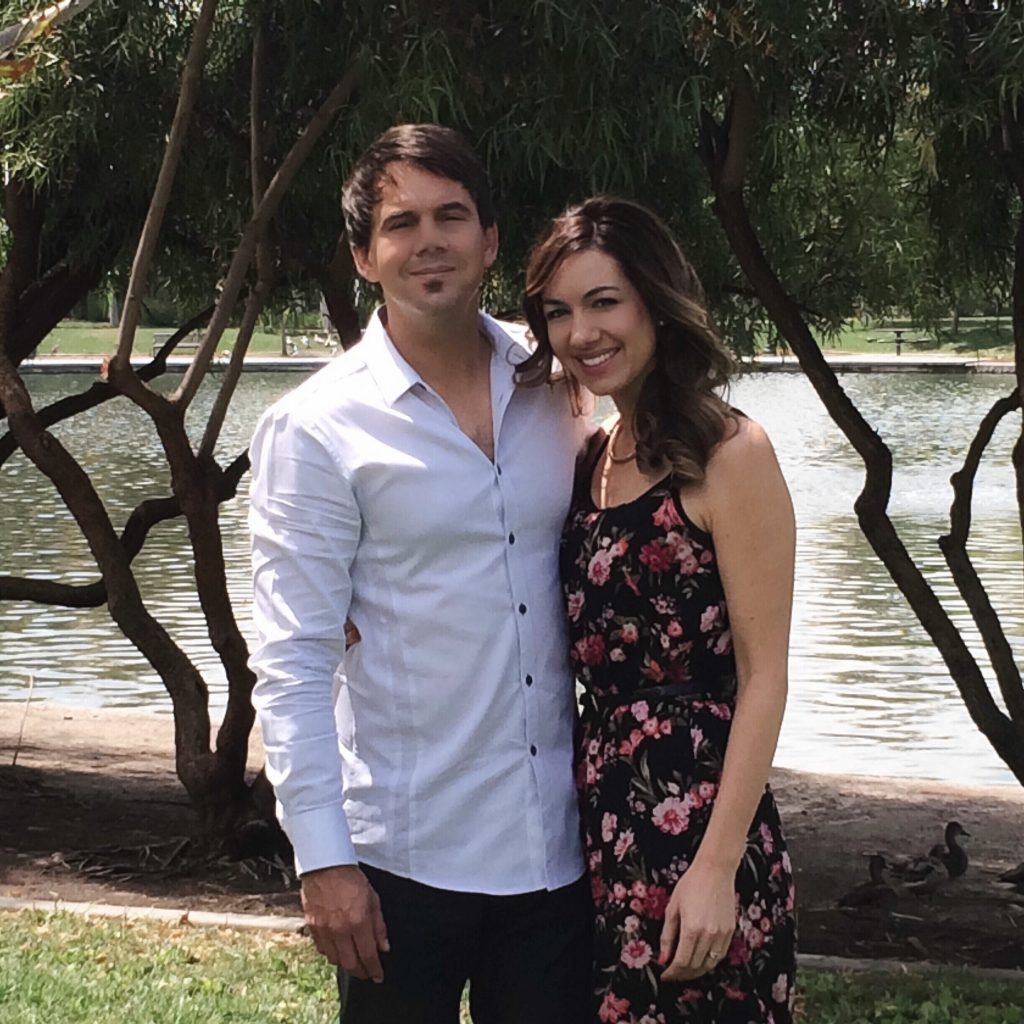
And what if God created the world the same way? There are mysteries, uncertainties, doubts, and questions. God allows that, while at the same time making us deeply curious and inquisitive. What if that is God’s invitation to us saying, “Hey, I’ve got more for you. I want you to wrestle with this. I want to reveal myself to you”?
I think [of] Jacob in the Old Testament, in the act of wrestling with God. Through our doubts, we don’t necessarily come away with all the answers, but we can walk away with a changed name. And we can walk away having encountered God in ways that maybe we haven’t before.
I think one thing that I’ve seen in Christian subculture is that we get so obsessed with wanting all the answers. But it’s not about having every single answer. It’s about the wrestle. It’s about the struggle. It’s about intimacy with God.
“We get so obsessed with wanting all the answers. But it’s not about having every single answer. It’s about the wrestle. It’s about the struggle. It’s about intimacy with God.” – Dominic Done
I think of C.S. Lewis, who went through his own aching, raw seasons of doubt when he wrote A Grief Observed after his wife died. Coming out of that time, he said, “God, you’re the great iconoclast. My view of you is being shattered.” It was a version of deconstruction, but he would say in another book, “Now I know why you give no answer, because you yourself are the answer.” In other words, it’s less about trying to come up with scripted answers, bullet points, certainty. It’s about depth in a relationship that can only come through those times of wrestling with Him.
Reshaping Our View of Doubt
So, for many people, their theology of doubt begins in Genesis 3. But what I say is, “No, let’s back up a little bit. What if our theology of doubt and questions should begin in Genesis 1?” And what I mean by that is Genesis 3’s where most people view doubt. Adam and Eve in a garden, they’re tempted, and the serpent uses questions as a way to derail their relationship with God and bring sin into the world. And that’s true, Satan did use doubt in a very destructive way. Doubt can be destructive if it’s not dealt with and reacted to in a healthy way.
For so many people, that’s where their theology of doubt begins. They think, Okay look, doubt is always of the devil. Questions are always bad. So let’s just suppress them and let’s just pretend everything is okay. But I argue we should go back to Genesis 1, because what we see there is an infinite God who creates a finite world. We see a God who has endless power, resources, and knowledge. And yet, He creates. And just by the act of creating, He’s going to create something lesser than Himself. He’s not duplicating Himself. He’s making something less than Himself, which means just by definition, the world in which we live is going to have boundaries and limitations. We’re going to have boundaries and limitations. He placed the first humans in a garden which had boundaries and limitations. They had limitations on their time, limitations in their knowledge. There’s a lot of uncertainty—even the animals needed to be named.
And at the same time, in a world of boundaries and limitations and unresolved mystery, He creates male and female deeply curious, deeply inquisitive. And there were things they wanted to discover.
I think if we start there, in Genesis 1, it reshapes how we view doubt. It reshapes our theology of questions, because then we realize God made the world in which doubt and questions could exist, and actually, they can be the very catalyst that pushes us closer to Him.
Jesus Can Handle Your Doubts
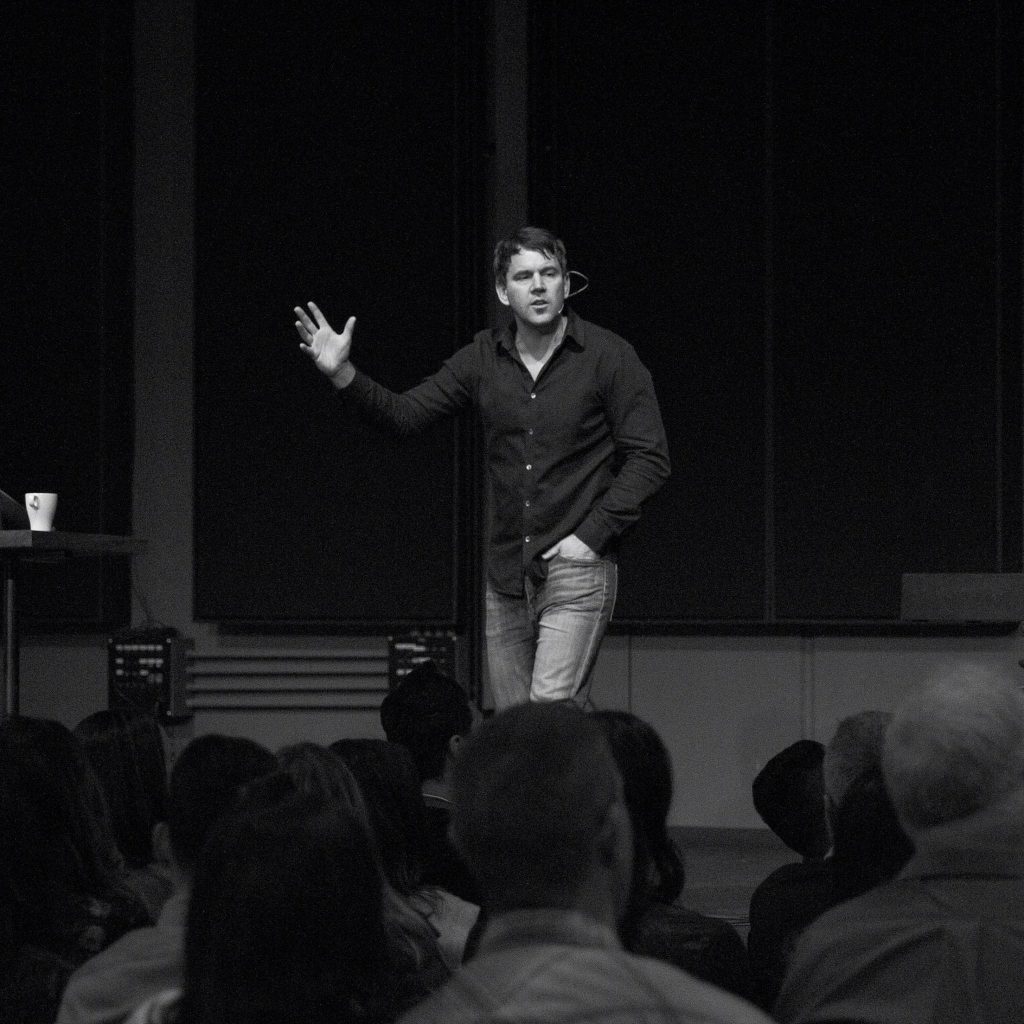
So many of the authors of scripture had doubts. John the Baptist, I was just reading his story recently. Jesus said he was the greatest prophet who ever lived. That’s no small compliment. And yet, there is a time in his life when he’s in prison and he sends a message to Jesus, saying, “Are you the one, or should we look for another?” I mean, talk about doubt. “Are you the Messiah? I don’t know. I’ve got questions.”
Jesus didn’t rebuke him for his less than perfect faith—He gave him room to ask that question. And then Jesus says “This guy is the greatest of all the prophets.” That’s so beautiful and amazing to me.
I think that some of the rawest and passionate expressions of doubt ever written are in the Book of Psalms. Psalm 22: “My God, my God, why have you forsaken me? Or, “How long, oh Lord,” or, “Why do the nations rage?” These deep, and even unsettling, questions are found in Psalms.
Here’s what I love: it’s not just the content of the words, but that God gave space for it. God didn’t edit out the doubt-filled tomes. He didn’t say, “You know what? Forget Psalm 22. That’s not going to be in the Word.” He allowed it space, which I think is God’s way of saying, “Look, there is room to be honest. In fact, I want you to be honest. And in those times where you’re hurting, questioning, asking, Why? you’re going through some tragedy or crisis, or it seems like God is silent, I want you to bring those things to Me. I want you to know that I care for you. I want you to know that I’m standing with you and beside you. Just tell me what it is you’re experiencing. Come to Me when you’re weary and heavy laden, and I will find you rest.”
The Bible is jam-packed with stories and examples of characters like that, women and men who had doubts and uncertainties. And Jesus, He gave them space. In Matthew 28, the Great Commission, He sends them out into the world and you have this amazing line that says “Some worshiped, and some doubted.” And if I were Jesus, I would divide the worshipers from the doubters. I’d go, “Okay, worshipers, you’re part of this thing. You doubters go home.” But He doesn’t. He sends out both the worshipers and the doubters. They were vital to the revolution that Jesus began that literally turned the world upside down.
So I would say you’re not alone. And not only that, you’re actually right where you need to be, because God is going to use this season in your life to grow your faith. Don’t give up on your faith. Don’t give up pursuing truth. Don’t give up seeking and searching for the answers and for God. He will meet you on the other side.
Studying Both Sides Helps Our Understanding
In the process of learning, many times we discover that we didn’t know that we didn’t see. I can’t say how many questions I’ve had about scriptures that were so confusing to me, and once I actually began to look into what it meant, I was like, Oh, that wasn’t as weird as I thought.
For example, the Book of Ruth: one night she comes and lays at Boaz’s feet. I’m like, What is that about? It just seems like the weirdest thing. But in that culture, it’s a form of a marriage proposal. And once you begin to peel back similar layers, it makes sense.
And so that process of learning, don’t settle for the low hanging fruit or for clichés, but actually say, “I want to go all in, and I want to tear into the story, and I actually want to read both sides.” That’s what I did, actually.
There was a time in my life when I had a lot of questions. I had read some of these atheists and what they were saying about God. And the further I went down that path, the more I realized, Oh, this is actually a worldview that’s pretty empty. But Nietzsche once said, “If you stare into the abyss, the abyss is going to stare back into you,” and he’s speaking about this worldview of nihilism and atheism and the emptiness of it, the aching loneliness of it.
I took a season—a couple-year period actually—and went down this path and looked at what this worldview has to say, and I got to a point and realized, Oh, okay, I’ve read a ton of these books now, and I’ve studied their worldview, and it’s empty.
That process of learning and reading books on both sides, in a weird sort of way, strengthened my faith, because I’m able to counterbalance that with the story of C.S. Lewis and others who have gone through similar times. And I think Okay, there are some answers here. Thinkers like N.T. Wright offer really intellectual, robust answers to some of the questions that we have. Alexander Pope said that “A little learning is a dangerous thing.” But when we dig deep and study both sides, I think that’s where wisdom is found.
Developing a Posture of Receiving from God
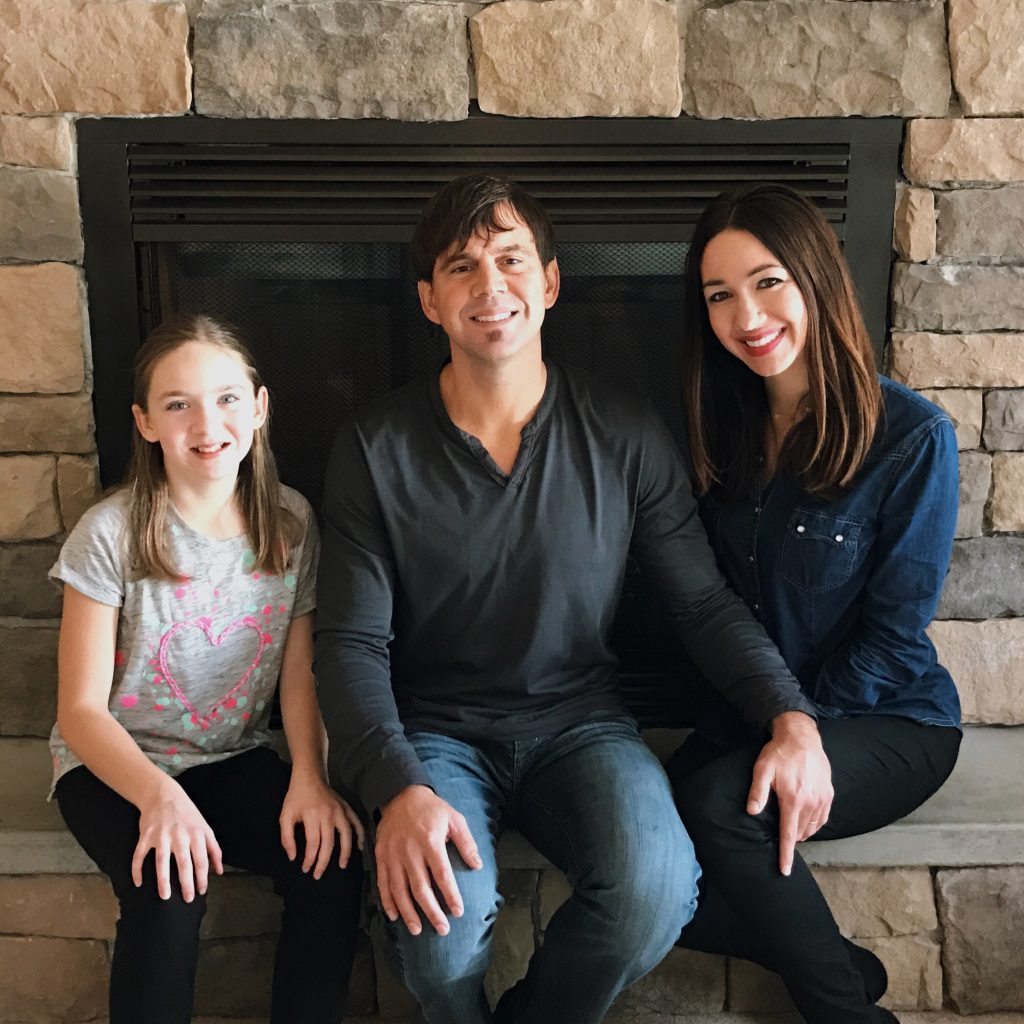
One practical way that we can move through our doubts is through study, through listening to a good podcast or reading Jesus Calling or tearing into a good commentary or sitting down with a teacher or a professor or pastors, one who is further on in their spiritual walk. I think everyone’s heard about Jesus Calling, and it has impacted so many lives, including my own. I just find it deeply refreshing.
I pastor this church in Portland, and there are so many people who have been shaped and inspired through its words as well because it helps you slow down. It helps you to be in the moment and in a posture of receiving from the Lord. That’s what I love about it, it’s impossible to read Jesus Calling without asking the question, “God, what are you saying to me today? What is your heart for me today?” Bathing yourself in that day after day after day puts you in a place of receiving and trains the soul to go through life in a posture of receiving.
Here’s a line from Jesus Calling on February 29. I just love these words. I think this lines up with so much of what we’re talking about. It says:
“You are on the right path. Listen to Me more and less to your doubts. I’m leading you along the way I designed just for you. Therefore, it is a lonely way, humanly speaking. But I go before you as well as alongside you, so you are never alone. Do not expect anyone to understand fully My ways with you any more than you can comprehend My dealings with others. I’m revealing to you the path of Life, day by day and moment by moment. As I said to my disciple Peter, so I repeat to you: Follow Me.”
And I love those words “follow Me” because I think it captures what the journey of faith looks like, that when Jesus invites us to come after Him, it’s about following. It necessitates movement and motion and change and travel and adventure. And so, that means there’s going to be seasons in our lives when we’re sensing Him and His presence is real, closer than our next breath. And there can be other times when we wonder where He is. But it’s in times like that He’s taking us deeper and deeper into Himself. You know the word question actually comes from the root word quest, and that’s what we’re all on a quest. We’re pursuing God and He’s with us through all the highs and lows, the ebbs and flows of faith. And even if it feels like our faith fails, the good news is He never will.
“God Is Speaking, but I’m Not Always Listening.”
I’m learning that God is speaking, but I’m not always listening. The poet Elizabeth Barrett Browning once said that “Earth is crammed with heaven and every common bush afire with God. But only he who sees takes off his shoes.”
“I’m learning that God is speaking, but I’m not always listening.” – Dominic Done
And so, we begin to understand, You know what? God is speaking, maybe it’s through His scripture when I open it up in the morning. Or maybe it’s in a conversation like this one, and something you say just resonates and you go, Oh yeah, Lord, you’re speaking to me that way. Maybe it’s just the beauty and wonder of creation as you’re walking outside and taking it all in. Maybe it’s just you being moved by some piece of art or a poem, and it touches your heart. I think these are all ways that God speaks to us.
If God exists, then there is no such thing as ordinary ground. It’s all holy. Like this moment right now, wherever you are is holy ground. The only response then is to be like Moses: Okay, I’m gonna take off my sandals. I’m going to learn to listen, even in the mundane moments, even in the hectic moments sitting in traffic, mowing the lawn, or washing the dishes. God, you’re there. And what do you want to say now? How are you speaking to my heart now?
It’s not just the big dramatic times when God rolls back the clouds and says, “Here’s the answer.” I think we all have times where it’s really obvious God spoke. But I think most of the time, 99% of the time, it’s the subtle whisper, it’s sublime. It’s those moments when we learned to be still that He’s there and we discover He is God.
Narrator: You can find Dominic’s book When Faith Fails at your favorite book retailer today.
If you’d like to hear more stories about how to go on after struggling with life’s toughest moments, check out our interviews with Bishop TD Jakes and worship leader Don Moen.
Narrator: Next time on the Jesus Calling Podcast, we talk with Robert Morris, the founding senior pastor of Gateway Church in Dallas, Texas. Pastor Morris has written about the many ways we can be generous to others with what God supplies us. He addresses the importance of good stewardship of the resources we’re given so that we can live a life of generosity, even when we may be struggling ourselves.
Pastor Robert Morris: Stewardship involves every area of our life, because if God owns all the money in my bank account, then I don’t even grieve if He asks me for some of it to use it for some reason. But it’s more than just the money. He owns my life. That’s why I wrote Beyond Blessed, because for us to truly live a life of blessing or a life that blesses others, we’ve got to be generous. But we’ve also got to be good stewards of what God gives us.
Narrator: Do you love hearing these stories of faith weekly from people like you whose lives have been changed by a closer walk with God? Then be sure to subscribe to the Jesus Calling: Stories of Faith Podcast on iTunes, Stitcher, or wherever you listen to your podcasts. If you like what you’re hearing, leave us a review so that we can reach others with these inspirational stories. And, you can also see these interviews on video as part of our original web series with a new interview premiering every other Sunday on Facebook Live. Find previously broadcasted interviews on our Youtube channel, on IGTV, or on www.jesuscalling.com/media/video.
